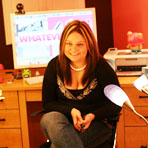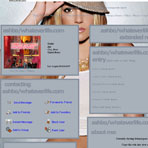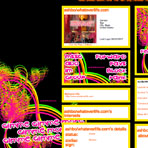
What to Do When Your New Job Is a Nightmare
You just started a new job. It's like a dream come true -- except when it's not. What's a professional to do when she accepts a job that seems like a living nightmare? Read on for solutions and advice from a career coach.
1. Assess the Situation (and Yourself)
There are a lot of different reasons why your new job may seem less than ideal. Perhaps your boss is a micromanager. Maybe your duties are different than what you'd thought they'd be. Or a client may have jumped ship, leaving you and your coworkers suddenly scrambling. Consider what's making you miserable before taking any kind of action.
Lynn Berger, a Manhattan-based career coach and counselor, agrees. "I think you have to really scope it out." She urges her clients, "See if there's any way you can take any self-responsibility for this. Also, ask yourself, is there a way you can grow from this? Maybe you've never worked for a boss with a particular personality type, but you may be able to deal with it over time and learn from it."
2. Open a Dialogue
If your supervisor seems happy with your performance while you're not happy in the position, it may be very easy to start a conversation about what's making you miserable. She may be willing to shift your responsibilities or provide you with additional support.
If your boss seems displeased, it can be a bit more difficult, says Berger, a member of the International Coach Federation. "You've still got to open a dialogue, and the earlier the better." She urges dissatisfied employees to talk to management, saying, "Get clear on what you need from them and what they need from you."
Are you without the proper tools and support to do your job? "Throw it out there to your boss and see if he will help. You have to let people know what you need," advises Berger, a graduate of Columbia University.
If you can't talk to your boss because she's the root of your problem, Berger says, "Check it out with other people you work with. Watch how they're handling this person. And if you find out from coworkers that everyone else who's had this position has been out of there in three months, that could be very revealing."
3. Patience Is a Virtue
When Berger works with clients who fear they've made a mistake in accepting a new job, she reminds them, "It takes three to six months until you're comfortable in a new job. There are going to be growing pains, especially if you haven't started a new job in a long time."
New job starters, she says, should be prepared for a bit of anxiety as they roll up their sleeves and dig in to a new position. "It's overwhelming! You're going to be exhausted and you need to give yourself room around that."
While you're ramping up, "Observe as much as you can and not only learn the job, but learn about the company and the way it works, the way things are done," she says. That can go a long way in helping you feel more comfortable.
4. If You Leave...
Do you still feel like you have to leave? Berger tells workers to ask themselves, "Is this a perceived nightmare or a real nightmare? If you're a victim of verbal or physical abuse at work, no one should have to live that way."
However, even if you're not subjected to those horrors, you may still feel as though you're in a nightmarish situation. If you feel you've given it time and your best efforts, you may choose to move on. "No one should feel tortured or sick over a job," concedes Berger.
When looking for another position, you can explain your brief time in this job by saying, "I realized early on this wasn't the right situation." Berger says that job seekers should make the experience seem as positive as they can. Also, she wants professionals to learn from their mistakes. Before accepting another offer, "Ask questions. Visit the company a few times. Speak with employees there. Make sure you understand the full scope of the position and what the day-to-day will be like."
"You never want to regret that you walked away from an opportunity too quickly," Berger says. "As long as you know you gave it your best shot and tried, that's what really counts."

















